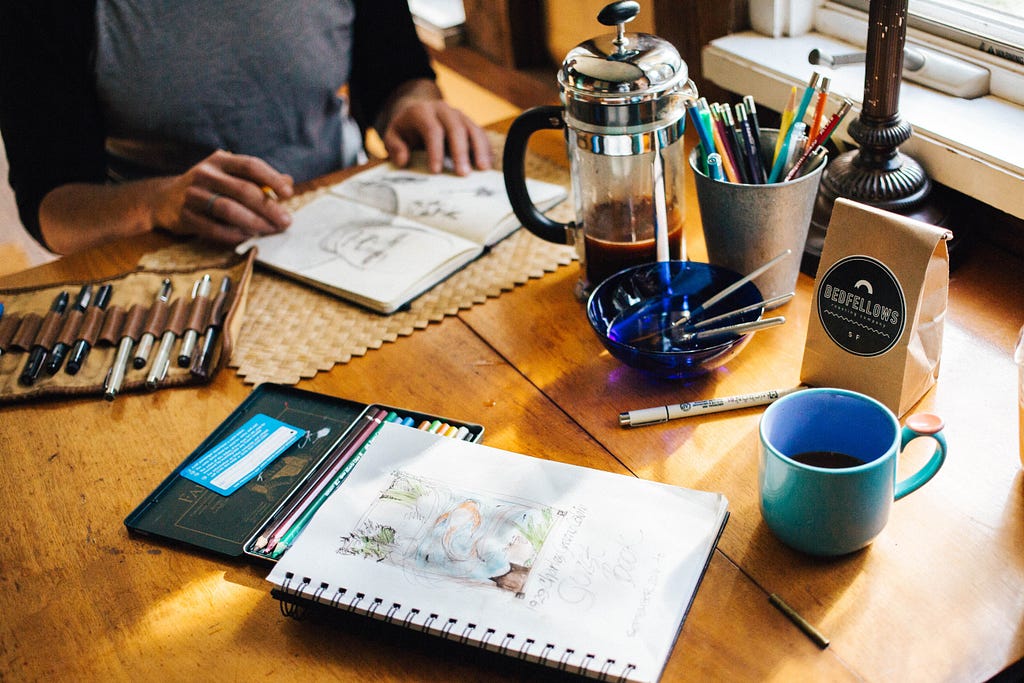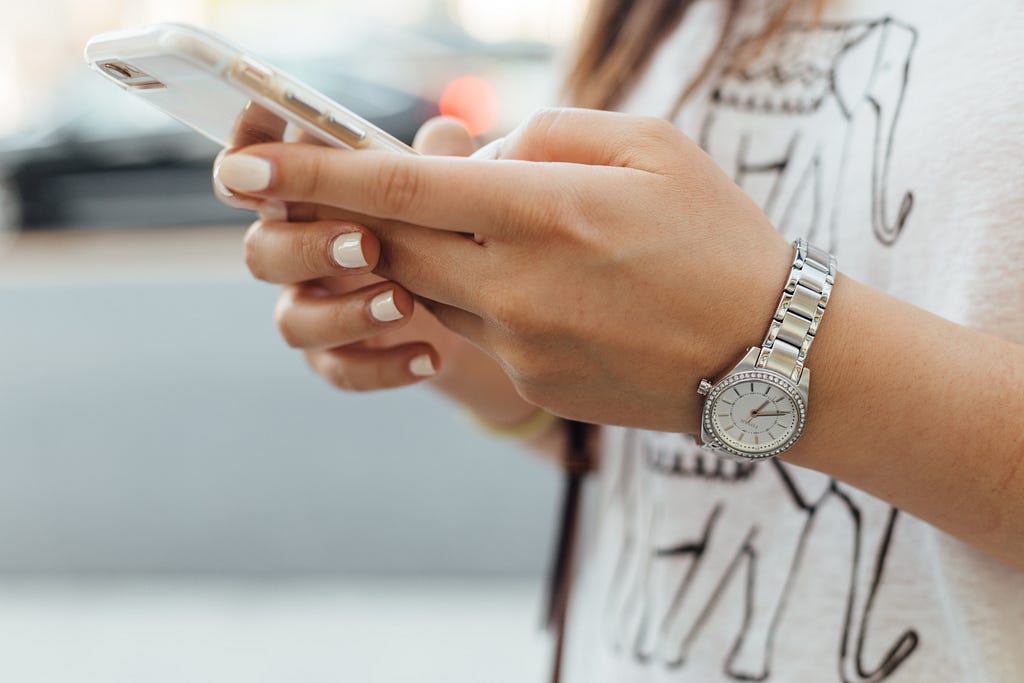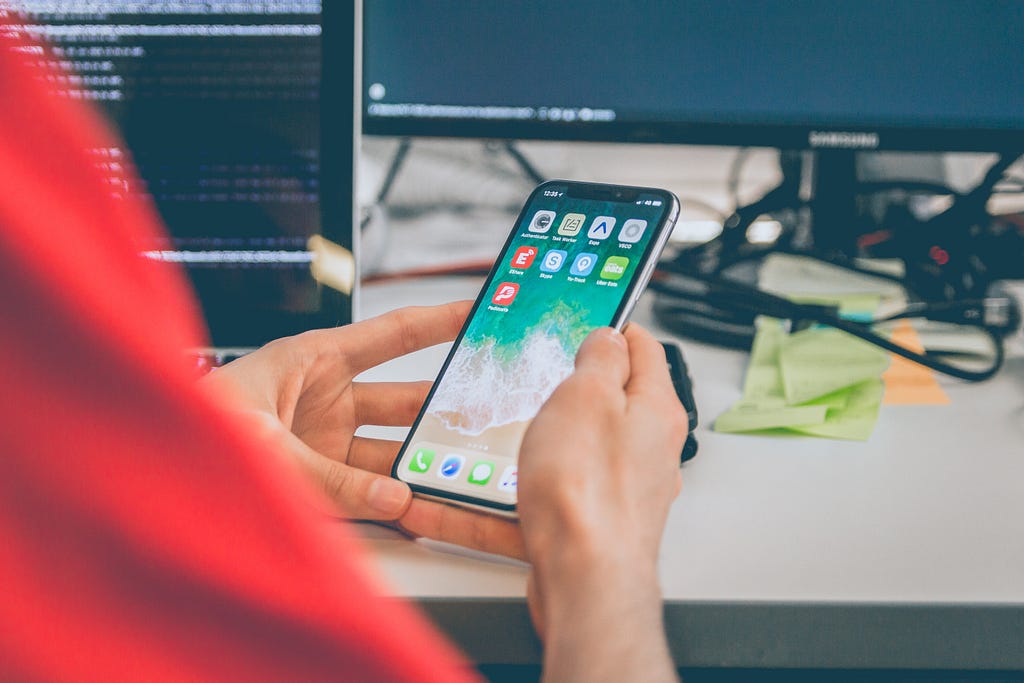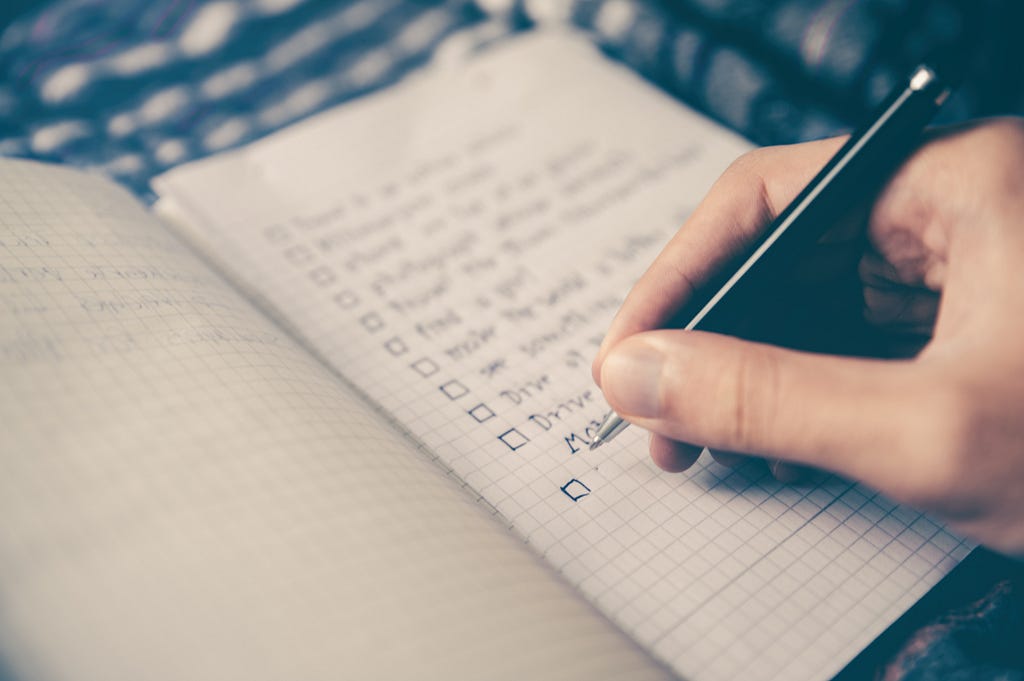
Have you ever checked the screen time setting on your phone? I have, and honestly, I was quite surprised and mad at myself for spending so much time scrolling through my phone. We always complain that we lack time, yet spending two hours per day on Instagram or YouTube doesn’t seem to register as a problem. Why are we so obsessed with our phones, is our obsession affecting our productivity, and how can we kick this bad habit?
Smartphones are our new comforters.
More generally, it’s tough to picture life without our smartphones. More than a phone, these devices became a means of payment, a personal assistant, a map, a planner, a doctor, a newspaper, a camera, a TV, a music player, or even a parent reminding us to drink more water.
However, this technological improvement encourages a certain dependence, a fatally inevitable phenomenon: it becomes severe, impossible, or even scary to go a day without our phones because we would feel “empty” without them.
“In the past, people were afraid of losing their keys, of losing their wallets. Today, we see a shift from these fears to the smartphone, which crystallizes our entire memory,” explains Catherine Lejealle, a sociologist of Information and Communication Technologies (ICT).
This smartphone addiction is comparable to other addictions since it produces the same effects, such as dependence, stress, and anxiety. This phobia mainly affects generation-Z, those born after 1995, also known as the “digital natives.” And now there’s even a term to describe this addiction: nomophobia.
“Nomophobia (no mobile phobia) is a term describing a growing fear in today’s world — the fear of being without a mobile device, or beyond mobile phone contact.”
One of the main reasons for nomophobia is another symptom called FOMO: Fear Of Missing Out. Indeed, when they’re not connected, people are scared to miss important news, an important text message, or even posts on their social media feeds. But all that technology, besides feeding our addiction, is making us less productive.

So how can a digital detox help us to be more productive?
1. Getting away from screens makes you more creative
Creativity is a value that we cherish and encourage here at Black Pug Studio.
Smartphones and screens, in general, are making us very passive, and they prevent us from truly engaging in activities that allow our creativity to unfold. This is a real concern nowadays, especially regarding children. We used to invent all kinds of games that engage our imagination as children. Now, a lot of children passively watch screens which is causing a new concern for their early brain development.
“Bored and boring, they lack a natural curiosity and a sense of wonder and imagination that non-screen kids seemed to have.” Nicholas Kardaras, author of Glow Kids: How Screen Addiction is Hijacking Our Kids.
In a way, we don’t know how to be bored anymore, we have become used to always needing information, but creativity takes time and a little boredom sometimes.
2. Smartphones and especially social media can be very distracting

Most of the applications are designed to distract us and capture our attention. An application designers’ goal is for us to spend a lot of time on their app and to keep coming back. They are created to be so addictive, and as soon as you activate the notifications, you can easily be tempted to check them every 10 minutes. This behavior causes you to lose your focus and results in spending unnecessary hours on a simple task that could have been finished in an hour, given your full attention.
3. Multitasking is actually very bad for productivity
Multitasking is a trap: when you think you’re going faster by achieving multiple tasks, none of them has your full attention. By thinking we achieve more, we do less. Multitasking could even affect your brain: it has been proven that multitaskers were much less mentally organized. A study led by the Harvard Business School showed that among 900 people who were working on a creative project, those who multi-tasked were less creative and felt more stressed.
So when you think you’re saving time by texting while watching your favorite TV show while preparing your work presentation, you’re fooling yourself.
4. Taking time off from screens reduces stress and increases happiness
Being hyperconnected can be stressful, especially when it comes to balancing work-life. Some people check their emails on nights and weekends, taking no actual break from work and their responsibilities. Recent studies also showed that social media negatively affects mental health, making you feel envious and unworthy compared to others.
“The key to digital media use and happiness is limited use […] Aim to spend no more than 2 hours a day on digital media, and try to increase the amount of time you spend seeing friends face-to-face and exercising — two activities reliably linked to greater happiness.”, explains Prof. Jean Twenge, psychology professor at San Diego State University.
How to significantly reduce your screen time
You probably heard of the term “digital detox,” referring to the reduction or limiting of any screen time. The phenomenon was born in the heart of Silicon Valley, where, ironically, the children of Apple and Google executives attend traditional schools and learn to live without a computer or television. In China, they even have internet addiction centers.
Without going this far, here are a few things you can do to reduce your digital use and, therefore, be more productive, mindful, and focused on your projects.
1. Acknowledge your digital consumption
The first step to taking a break from your phone is awareness of your consumption habits: it is essential to realize your excessive use and its influence on your productivity. You can check your screen time on the settings of your phone. Applications, such as Moment, BreakFree or RescueTime, also allow you to see how much time you spend on different applications, to quantify your use and take stock. Often, we underestimate the time spent on our phones by around 50%. People spend about three hours and 15 minutes a day on their phones, according to the app RescueTime. I’m sure we all could use an extra three hours per day, to move a project forward or even just to relax and spend time with friends or family.
Thanks to these applications, the simple fact of seeing our quantified use can constitute a small shock. Once this awareness has been raised, it is necessary to identify the time-consuming applications and decide if we can reduce our usage.
2. Adopt a morning routine that doesn’t involve your phone

How many of us check our phones or devices before even fully waking up? Mornings are a chance to start the day in a motivated and purposeful way; by preparing a nice breakfast, writing your to-do list for the day, meditating… even sleeping a bit longer! Most people check their phones first thing in the morning: news, social media or even work e-mails… This habit causes stress and gives us less time to get ready for the day. An obvious but not often adopted tip is to use a proper alarm clock instead of your phone, sometimes analog is best.
Sleeping next to your phone is also bad for your health, since you’re exposed to cell phone radiation and electromagnetic field frequencies all night long.
3. Turn off notifications
A quick and easy way to prevent yourself from being distracted all day long is turning off all notifications or keeping them just on a few essential apps. Indeed, knowing that, on average, a smartphone user has between 80 and 100 applications installed on their phone (with 30 commonly used), if we consider that notifications are activated for all, we can quickly have our attention stolen every two minutes.
By disabling push notifications and instead choosing when an app takes your attention, you create the opportunity to check all of your updates at once instead of coming back every 2 minutes on your phone.
4. Set boundaries
If you have a hard time self-regulating, many applications exist to regulate excessive use of your phone. Flipd, AppDetox, and Moment offer to set a limit and remind you when the limit is exceeded. While some notify you only, others filter notifications or completely block your phone after you reach the limit. It is also possible to activate this feature at certain times of the day or at certain times (such as when at work or spending time with family). The types of applications and degree of regulation depend on the degree of addiction and especially on the user’s ability to self-regulate.
5. Go back to more traditional methods

An efficient way to reduce the use of your phone is to make it less essential. For example, use a notebook or a planner instead of managing these aspects of your schedule on your phone, read books on your commute instead of playing Candy Crush, and try to find other activities that give you as much pleasure as surfing your phone.
Knowing all the benefits of digital detox and having all the clues to apply it, you have no more excuse! Being less dependent on your phone will definitely improve your productivity, mental health, creativity, social relationships, and your life in general.
About Black Pug Studio
Black Pug Studio is a creative company based in Galway, Ireland, specialized in the design, development and localization of websites, e-commerce solutions, SaaS products, and tailored software.
We partner with companies to create their ideal business tools using the latest technologies available wrapped in beautifully designed interfaces.
Get in touch today and start building your project with us! We are looking forward to hearing from you.
How to be more productive thanks to digital detox was originally published in Creative by Black Pug Studio on Medium, where people are continuing the conversation by highlighting and responding to this story.




